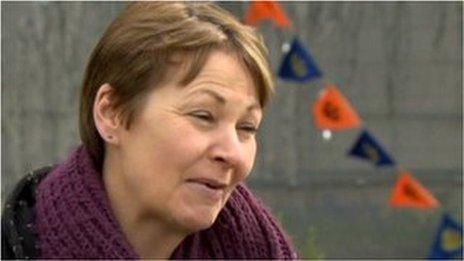Caroline Lucas to step down as Green Party co-leader
- Published
- comments
Four things about Caroline Lucas
Caroline Lucas is to step down as the co-leader of the Green Party of England and Wales in September.
The party's first and only MP - for Brighton Pavilion - has shared the role with Jonathan Bartley since 2016.
In an article for the Guardian, external, Ms Lucas said Greens "must always be an insurgent force for good, consistently asking the big questions that matter".
She said a new leadership team "will step up to the challenge that our increasingly febrile times present".
Ms Lucas, 57, said she would be "focusing even more" on her work in Parliament and in her constituency, rather than standing for re-election.
Green Party leaders are elected for two years and a fresh election is due to take place this summer, with nominations opening in June and a result announced in September.
She took Brighton Pavilion from Labour in the 2010 general election.
"I believe that Jonathan and I have shown the power of working together, since we became joint Green Party leaders in September 2016, and it's now time for me to show the power of letting go," she wrote.
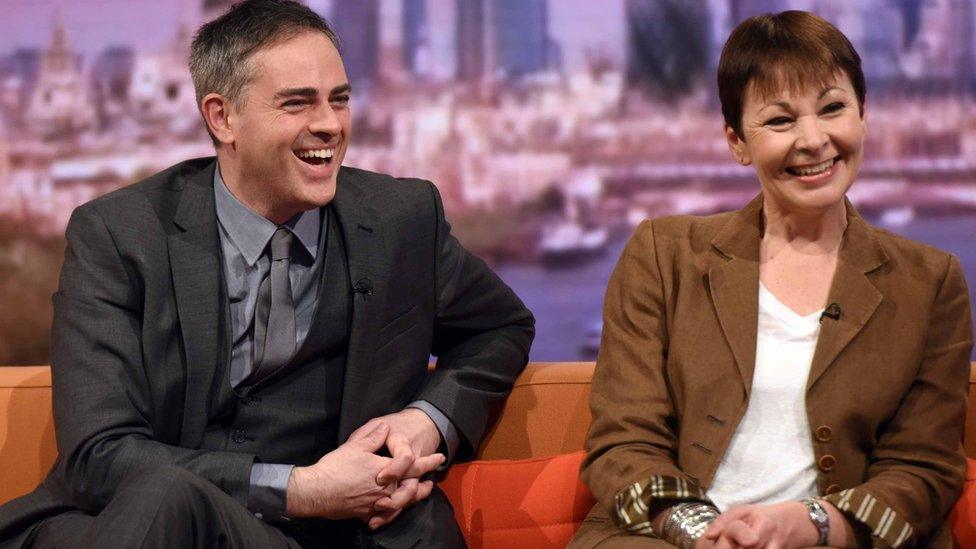
Ms Lucas has shared the leadership role with Jonathan Bartley since September 2016
Ms Lucas said the party's structures had been updated in the last two years, which was one of the co-leaders' priorities in 2016.
She added that the Green Party must consistently ask "the big questions that matter... and give the people of this country the bold alternative that is so desperately needed".
Analysis: By BBC political correspondent Jonathan Blake
Most politicians only get one shot at leading their party, but Caroline Lucas has managed two stints in charge of the Greens. Although she claims not to rule anything out, this appears to be the end of her time at the top alongside co-leader Jonathan Bartley.
The party had its best ever local election results in May, and at the last general election Caroline Lucas increased her majority as an MP.
Awareness of plastic pollution is high and affordable housing, long championed by the Greens, is something mainstream parties are at pains to prioritise. But beyond local councils and a lone voice in parliament, the party can struggle to be heard.
Caroline Lucas is the Green party's most recognisable figure, its only member of parliament and so the big question now is; who's next? Whoever is elected will need patience, perseverance and persistence to make gains in an electoral system stacked against them.
Having a leader is a recent thing
In 2007, the Greens moved away from their longstanding tradition of having two principal speakers in favour of electing a leader every two years.
A former MEP, Ms Lucas won leadership elections in 2008 and 2010 but decided against standing in 2012, when she was succeeded by Natalie Bennett who served until 2016.
Mr Bartley, elected as a councillor in May, has yet to say whether he will stand again.
Paying tribute to Ms Lucas on Twitter, he said he was "so proud" of what the duo had achieved over the last two years.
Allow X content?
This article contains content provided by X. We ask for your permission before anything is loaded, as they may be using cookies and other technologies. You may want to read X’s cookie policy, external and privacy policy, external before accepting. To view this content choose ‘accept and continue’.
Other senior figures in the party, including MEP and finance spokeswoman Molly Scott Cato, have said they owe Ms Lucas a huge debt of gratitude.
Allow X content?
This article contains content provided by X. We ask for your permission before anything is loaded, as they may be using cookies and other technologies. You may want to read X’s cookie policy, external and privacy policy, external before accepting. To view this content choose ‘accept and continue’.
The party's share of the vote dropped by 2% at the 2017 general election, but it won 39 council seats - an increase of eight - in May's local elections in England.
Speaking at the time, Ms Lucas said: "The Green Party has taken a significant step forward with just a fraction of the resources of the bigger parties. We are now established as one of the four major English parties - and an electoral force right across the nation."
- Published29 May 2018
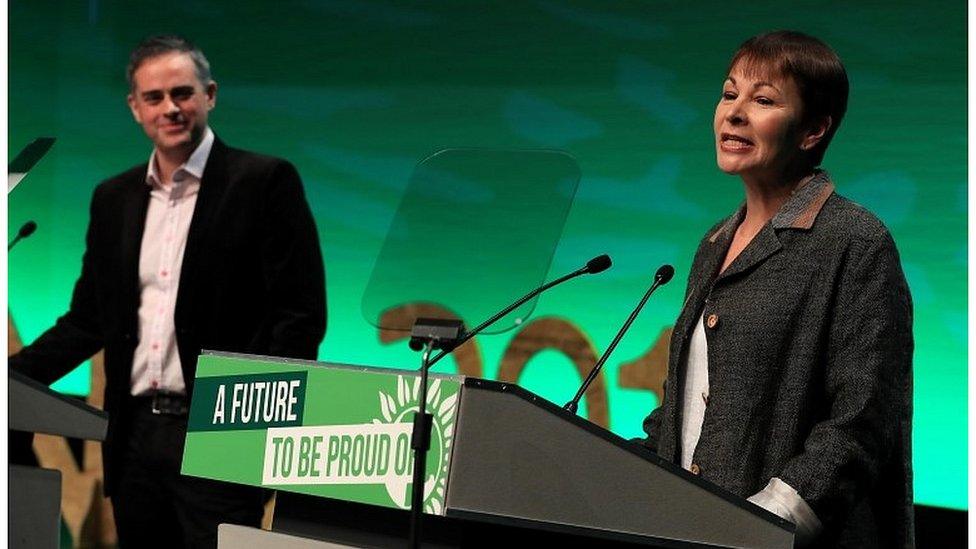
- Published9 June 2017
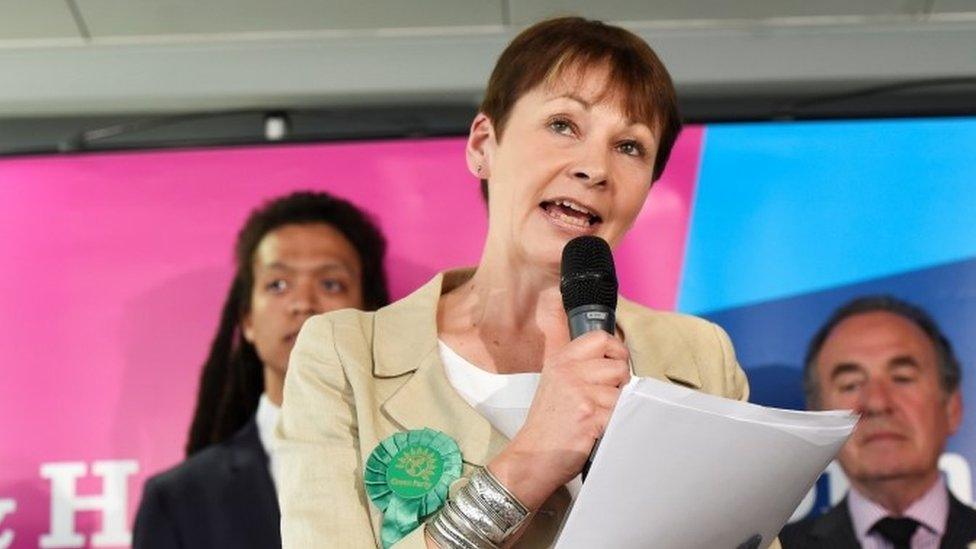
- Published28 May 2017
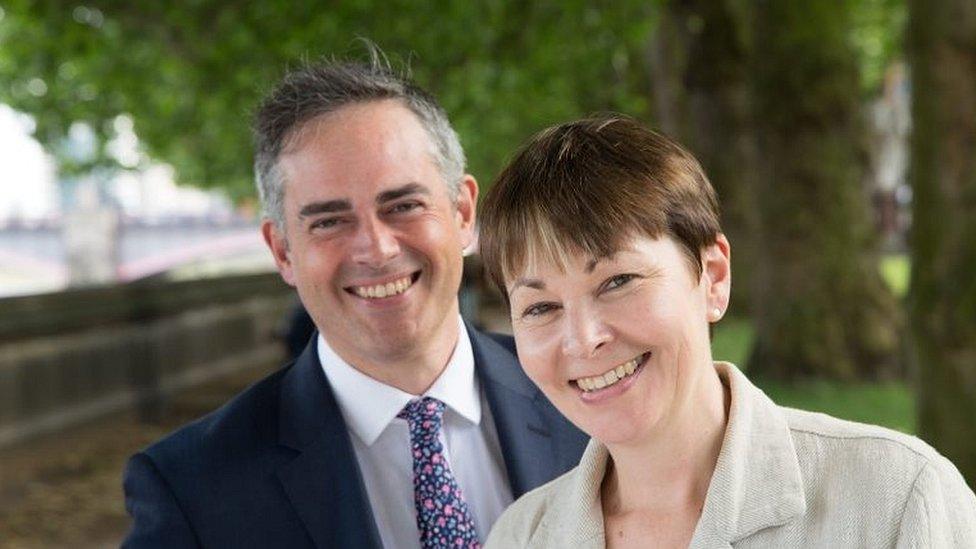
- Published29 April 2016
